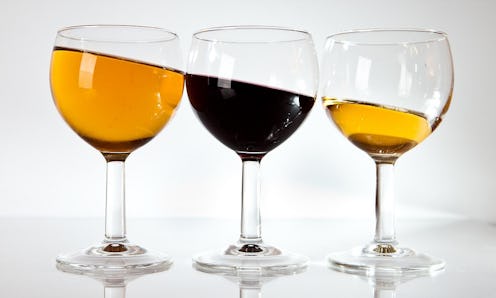News
Hey, Pessimist, You'll Want to Read This One

Today in science, everyone’s favorite rivalry: the optimists versus the pessimists. The BBC has done a round up of recent studies focusing on the neurological differences between those who see the glass half full, and those who see it edging toward empty like grains of sand slipping one by one through the hourglass of infinite time.
Elaine Fox, an Essex University psychologist and neuroscientist, studies individuals' “affective mindsets” and says pessimism correlates to increased electrical activity in the right frontal cortex of the brain. In Fox’s “negative bias” experiment, participants with pessimistic brain activity responded faster to angry faces, indicating their attention is fixed on the negative. A BBC reporter — and self-identified pessimist — took Fox’s test, then returned to the lab after a month of work to get a bit more zen. Not only did he report feeling happier, but his increased optimism was reflected in the results of his negative bias test, offering hope we can rewire our brains and improve our outlook with a little work.
Before you roll your eyes, pessimists, the work might be worth it.
Stress and anxiety associated with constant contemplation of what can and will go wrong are demonstrated hazards to health. A multi-decade Yale University study of a small Ohio town found that residents who expressed the most optimism about growing old lived, on average, 7.5 years longer than those who were more pessimistic. (The study factored out pessimism caused by illness or diagnosed depression). So, um, smile, dammit.
Related research by the University of Kentucky analyzed the diaries of 180 newly-inducted nuns to score the women for optimistic or pessimistic outlooks. (Though their diaries might not make for the most scintillating reading material, nuns are apparently great study subjects because convent life makes for similar environmental experiences.) Years down the line, those sisters that expressed the most positive emotions about life in their early 20s lived up to 10 years longer than those who expressed the least.
Holy cow is right. Get happy or you may die sooner. But try not to let that add to your stress...